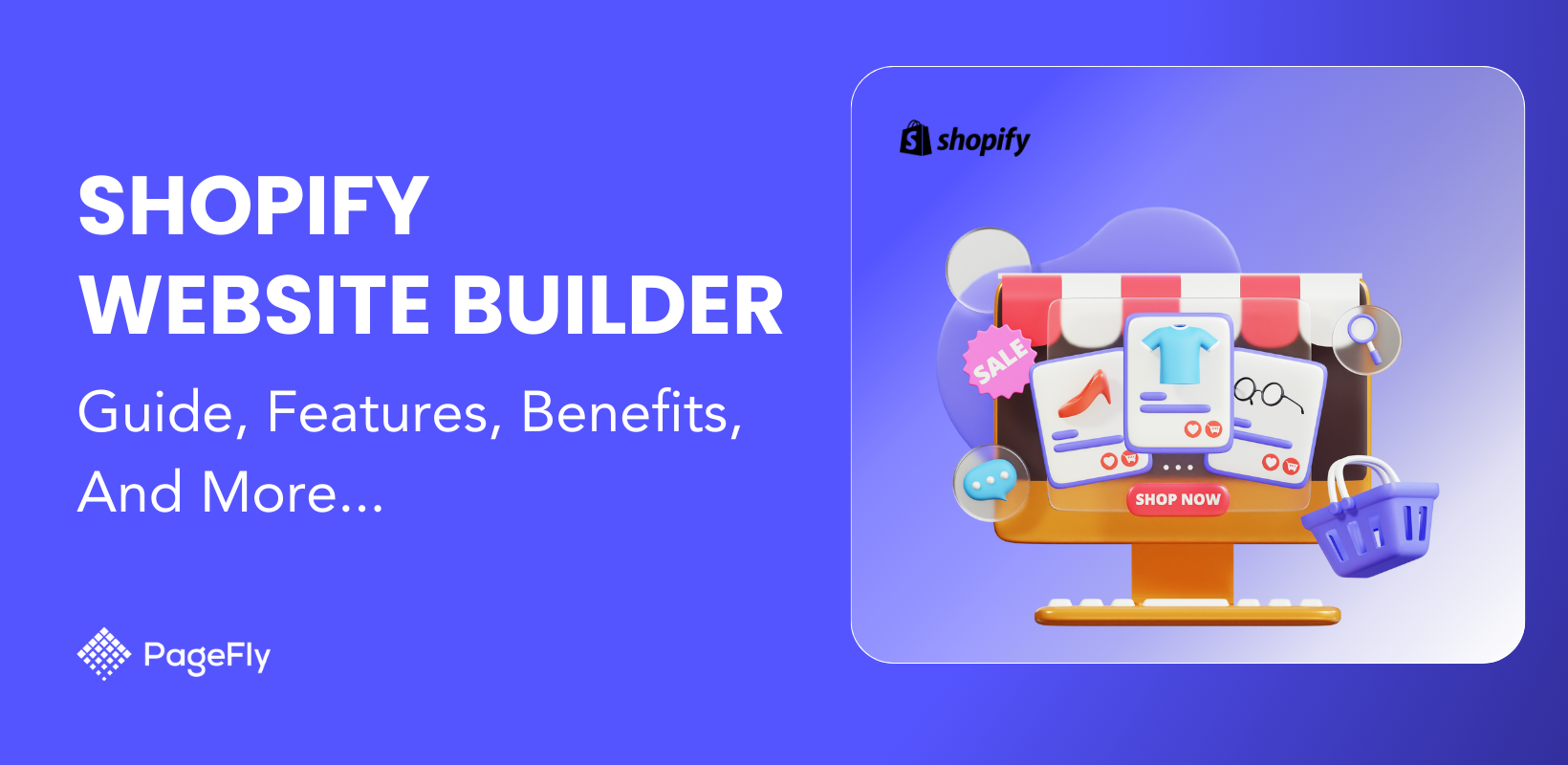Launching an online store? The battle between Shopify vs GoDaddy can feel like choosing your racing strategy. Do you prioritize a quick burst of sales with GoDaddy, or build a scalable powerhouse with Shopify for long-term growth?
This article will be your pit crew, helping you choose the perfect ride for your online business journey.
Shopify is ideal for long-term growth and GoDaddy is better for a quick start
Overview Shopify vs GoDaddy
Shopify stands out as a user-friendly and powerful platform for building online stores. But how does Shopify work to support your business? It allows you to sell unlimited products, provides extensive bandwidth, and even has its own payment processing system called Shopify Payments. These features make Shopify a robust solution for small business owners looking to establish a strong online presence.
GoDaddy, on the other hand, is more recognized for domain registration. While it offers website creation and e-commerce tools alongside domain services, these aren't its core strengths. Compared to Shopify, GoDaddy provides fewer customization options and features. However, for smaller businesses with a more basic e-commerce setup, GoDaddy might be a simpler and more affordable option.
Shopify features
Shopify is a comprehensive e-commerce platform designed to empower businesses of all sizes. Here's a look at some of its key features:
- Stunning Storefronts:Choose from over 90 professionally designed themes and customize them to your brand using Shopify's user-friendly drag-and-drop editor. No coding is required!
- Marketing Made Easy: Built-in SEO tools and social media marketing features help you get discovered online. Create a blog, run targeted ads on Facebook and Google, and track your results – all within Shopify.
- Effortless Inventory Management: Keep track of your products and inventory levels, whether you sell online, in-store, or both. Shopify's central dashboard gives you a complete view of your stock, along with valuable insights on shipping, payments, and marketing.
- Seamless Payments: Shopify Payments is a built-in secure payment gateway, but you also have the flexibility to integrate with over 100 third-party processors. Enjoy a smooth checkout experience for your customers.
- Simplified Shipping: Manage inventory across all your sales channels. Shopify tells you if you have enough stock to fulfill an order, and offers integrated shipping solutions with major carriers like DHL, UPS, and USPS. Print labels directly from your Shopify dashboard and track shipments effortlessly.
- Extend Your Store's Functionality: While Shopify offers a vast array of features, you can further customize your Shopify theme store with its extensive app store. Over 13,000 app integrations are available, from dropshipping tools to social media plugins, giving you even more control over your business.
- Reliable Support: Shopify provides 24/7 customer support via email, live chat, and phone. This is invaluable for new entrepreneurs or anyone who wants peace of mind knowing help is always available if technical issues arise.

Shopify is all-in-one e-commerce for any business
GoDaddy features
Considering GoDaddy for your online store? Here's a breakdown of its e-commerce features to help you decide.
- Limited E-commerce on Basic Plans:While GoDaddy excels at building professional websites, only its most expensive plan offers full e-commerce capabilities. This positions GoDaddy as a better fit for smaller businesses with minimal online sales needs.
Shopify pricing plan
Basic | Shopify | Advanced | |
Pricing | $29 per month (billed annually) | $79 per month (billed annually) | $299 per month (billed annually) |
Godaddy pricing plan
Basic | Premium | Commerce | Commerce Plus | |
Pricing | $9.99 per month (billed annually) | $14.99 per month (billed annually) | $16.99 per month (billed annually) | $29.99 per month (billed annually) |
- Theme Selection: GoDaddy provides over 20 storefront themes, fewer than Shopify but potentially sufficient for many businesses. Similar to Shopify, GoDaddy themes are customizable using a drag-and-drop editor.
- Product Management: GoDaddy lets you showcase your product catalog and track inventory across desktop and mobile. You can add photos, descriptions, and pricing details to each product listing.
- Shopping Cart and Mobile Friendliness: Easily integrate a shopping cart for a seamless customer checkout experience. Mobile users can also complete purchases conveniently, as all designs are mobile-responsive.
- Payment Processing: GoDaddy offers fewer payment processors compared to Shopify, with options like PayPal, Apple Pay, and Square.
- Shipping Options: For physical products, GoDaddy integrates shipping through USPS and UPS. You can choose flat-rate, weight-based, or free shipping options. Additionally, local pickup can be offered for in-store purchases.
- Appointment Booking (Bonus Feature): GoDaddy allows customers to book appointments directly on your website. You can manage deposits, and cancellation fees, and collect payments for these appointments. This feature also lets you create recurring class and event schedules, with staff management tools for scheduling and availability.

GoDaddy excels at building professional websites
Shopify vs GoDaddy: Key Difference
Set Up & Editor
Both Shopify and GoDaddy simplify website creation compared to coding from scratch. GoDaddy is especially easy - testers had basic sites up in under 30 seconds!
Here are the quick steps on how to build a website on Godaddy
Step 1: Create an Account

Create an Account
Step 2: Select Your Industry And Website Name

Select Industry

Choose Website Name
Step 3: Select Your Theme

Select Your Theme
Step 4: Customize Your Website

Customize Your Website
Step 5: Manage Your Settings

Manage Your Settings
Step 6: Enhance Your Website

Enhance Your Website
Step 7: Preview and Publish Your Website

Preview Your Website

Publish Your Website
Step 8: Customize Your Domain

Customize Your Domain

Choosing the right platform to build your online store is crucial. Here's a quick comparison of Shopify and GoDaddy to help you choose which platform best fits you.
Feature | Shopify | GoDaddy |
Focus | E-commerce | General website builder (e-commerce add-on) |
Ease of Setting Up Shop | Straightforward, prioritizes adding products | Uses ADI to generate template, requires separate button to add products |
Customization | More options (drag-and-drop builder) | Simple and quick editing, limited design options |
Learning Curve | Steeper (more features) | Easier (fewer features) |
Suitable for | Growing Businesses | Beginners |
Potential for Growth | Higher | Lower |
Overall, GoDaddy is great if you're starting and want a quick and easy online store. It's user-friendly and budget-friendly but with fewer bells and whistles. Shopify, on the other hand, is better for businesses that are growing and need more features to customize their store.
It's a bit trickier to learn at first, but it has more tools to help your store thrive. For those comparing Shopify vs competitors, for examples Shopify vs Magento and Wix or Shopify, you’ll find that Shopify offers far more scalability and customization, making it a better long-term choice for growing businesses.

Shopify makes adding products and setting up your shop a breeze

GoDaddy generates a personalized template
Ecommerce Tools & Features
Choosing the right platform to build your online store is not an easy task. So, this table breaks down their strengths to help you decide. Shopify excels in managing and selling products, while GoDaddy offers user-friendly marketing tools with the help of AI. Let's see which one best suits your needs.
Feature | Shopify | GoDaddy |
Product Management | ✓ Unlimited products | ✓ Unlimited products |
Organization tools | Limited | |
Discounts & promotions | ✓ Pop-up promotions | |
Inventory management | ✓ Detailed customer behavior reports | |
Reporting & analytics | ||
Sales | Ecommerce checklist | ✓ App Store (additional cost) |
Integrations | ||
Shipping | ✓ Integration with major carriers | Limited |
Branded shipping labels (US only) | ||
Marketing | ✓ Integrates with social media & marketplaces | Limited |
AI-powered marketing tools | ||
Best for | Robust online stores | Small businesses with marketing focus |
Both Shopify and GoDaddy can help you build an online store, but they cater to different needs. Shopify is better for bigger stores with lots of products. They have more tools to track sales, manage inventory, and add fancy features to your store. GoDaddy is easier to use and has built-in marketing tools that can help you get started fast, especially if you're a small business. So basically, choose Shopify if you already have a store or want something super powerful, and choose GoDaddy for a beginner-friendly option with marketing help.

Shopify shipping simplifies getting your products to customers

GoDaddy's sales features simply don't match Shopify's depth
Pricing Plans
Shopify offers a range of plans catering to different business needs:
- Basic Shopify: $29/month (billed annually) - Ideal for starting an online store.
- Shopify: $79/month (billed annually) - Provides additional features like abandoned cart recovery and staff accounts.
- Advanced Shopify: $299/month (billed annually) - Suitable for high-volume businesses with advanced needs.
While Shopify doesn't have a free plan, it offers a 3-day free trial that converts to $1 for your first month (Basic plan only). They also have a social media-focused Starter plan for $5/month, but it lacks a full website.
GoDaddy has a simpler pricing structure:
- Free Plan: Great for design but limited by ads and no custom domain (cannot accept payments).
- Premium Plan ($14.99/month): Allows appointment booking payments, not product sales.
- Commerce Plan ($20.99/month): The only GoDaddy plan for selling products.
So, if you are a beginner, GoDaddy's Commerce plan is a budget-friendly way to start an online store. For established businesses, Shopify offers the best features for managing and growing your online sales. The choice ultimately depends on your needs and budget.

Payment Options
Looking to expand your customer base and boost revenue? Offering a wider variety of payment methods is key. But with so many platforms out there, how do you choose the right one? Let's compare Shopify and GoDaddy based on payment options and fees.
Shopify makes it easy to accept payments however you like. They work with popular options like PayPal and Apple Pay, plus even take crypto and cash on delivery. Their checkout is super smooth now too, so you'll lose fewer sales. Plus, they can automatically show prices in different currencies to reach more worldwide shoppers. While Shop Pay is not mentioned specifically, it is Shopify's integrated payment solution that can further simplify the checkout process for returning customers. If you want a smooth checkout experience, Shop Pay might be a good option to consider.
The downside? Transaction fees. Unless you use Shopify Payments (their own gateway), you'll pay fees on every sale. On the basic plan, that's 2.9% + $0.30 per transaction. With Shopify Payments, you only pay standard credit card rates.
GoDaddy offers a flat 2.7% transaction fee on all payments, which is cheaper than Shopify's base rate. However, their payment options are more limited, with PayPal, Stripe, Apple Pay, and Google Pay being the main choices. Square is also available, but only in specific regions.
Shopify provides a wider range of payment methods, potentially increasing your customer reach. But if you don't use Shopify Payments, expect higher fees. GoDaddy offers a lower flat fee but limits your customers' payment choices.
Consider your target audience and their preferred payment methods to make the best decision for your business.

Shopify boasts over 100 payment gateways

GoDaddy offers a flat 2.7% transaction fee on all payments
Website Templates
While both Shopify and GoDaddy offer tools to build online stores, their approaches to design differ significantly.
Shopify prioritizes function over fancy frills. It provides over 150 industry-specific templates, many with a stylish base. However, most require a one-time fee on top of their subscription plans. While free themes exist, they're limited in number and variety. You'll need editing skills or invest in a premium theme to achieve a truly unique look.
GoDaddy offers free, easy-to-use templates with a catch. Their large selection might seem appealing, but many templates share a similar, generic look, especially for online stores. Additionally, GoDaddy pushes its ADI tool, which can lead to cookie-cutter designs.
In conclusion:
- If you prioritize a visually distinct and high-quality storefront with more creative control, choose Shopify. While there's an initial investment for premium themes, the design flexibility can be worth it in the long run.
- If you're a strict beginner on a tight budget, and a basic, functional store design suffices, GoDaddy's free templates might be a good starting point. However, keep in mind the limitations in customization and the potential for generic aesthetics.

Shopify offers over 150 industry-specific templates

GoDaddy boasts entirely free templates
SEO
Getting your online store noticed by potential customers is crucial for success. That's where Search Engine Optimization (SEO) comes in. By optimizing your website, you can increase your ranking on search engine results pages, like Google. This means more people will see your products when they search online.
Both Shopify and GoDaddy offer built-in SEO tools to help you get started. These tools allow you to:
- Craft compelling titles and descriptions for your products (meta titles and descriptions)
- Create user-friendly website addresses (URL slugs)
- Improve image searchability by adding descriptive text (alt text)
- Target relevant search terms (keyword support)
- Ensure your website looks great on all devices (mobile responsive themes)
- Customize website elements for better organization (custom headers and URLs)
However, Shopify offers a significant advantage in terms of SEO. While GoDaddy's built-in tools are helpful, they are limited. Shopify integrates seamlessly with a vast app store, allowing you to install powerful SEO tools like Yoast. These advanced tools provide more control over your SEO strategy and offer valuable insights into visitor behavior.
Shopify even has a dedicated app for e-commerce stores called Semrush. This app helps you track the popularity of different search terms, potentially helping you identify your next best-selling product.

Shopify plug-in SEO
Customer Support
Choosing ecommerce platforms hinges on many factors, and robust customer service is a big one. After all, when you invest your hard-earned budget, you deserve easy access to help, 24/7. Let's see how Shopify and GoDaddy stack up in this crucial area.
Shopify Customer Service:
- 24/7 Phone & Live Chat: We tested Shopify's live chat and received a response within 2 minutes. Their phone wait times might vary, but customer reviews indicate an average wait time of around 10 minutes.
- Email Support: While not ideal for urgent issues, Shopify's email support is helpful for non-critical inquiries. Response times may vary depending on complexity, but reports suggest an average turnaround of 12-24 hours.
- Community Forum: The Shopify community forum is a valuable resource. In our experience, we found helpful answers and insights from other users within a few hours of posting a question.
GoDaddy Customer Service:
- 24/7 Phone & Live Chat: Similar to Shopify, we tested GoDaddy's live chat and got a response in under 3 minutes. Phone wait times can fluctuate, with user reviews mentioning an average hold time of 15 minutes.
- Online Guides: GoDaddy's online guides are extensive and user-friendly. We were able to solve a basic billing issue using their well-written guides without needing to contact support.
- Social Media Support: GoDaddy's Twitter support account is a unique feature. While we haven't personally used it, positive online reviews suggest it's a helpful resource for quick questions or troubleshooting.
Feedback Channels:
Both Shopify and GoDaddy offer in-platform feedback options after interacting with support. Additionally, you can find general feedback forms on their websites.
It's difficult to say which platform offers "better" support as experiences can vary. In our tests, both Shopify and GoDaddy provided prompt and helpful service. However, Shopify's community forum adds another layer of support that some users might find particularly valuable.
Conclusion:
While both platforms offer robust customer service, Shopify might have a slight edge due to their faster response times via live chat. However, GoDaddy's extensive online guides and innovative social media support are also valuable assets. Ultimately, the best choice depends on your individual preferences and the type of support you anticipate needing most.

GoDaddy's online guides are extensive and user-friendly
Design
If you're a beginner creating your first online store, you likely prioritize user-friendly tools and professional-looking templates. GoDaddy might be a good fit with its AI-powered template builder and industry-specific themes. However, customization options are limited.
For experienced website designers, Shopify offers a wider range of templates with extensive customization options. You can even create a custom theme from scratch. This flexibility comes at a cost, though, as most templates require a paid subscription.
Shopify offers a wide range of user-friendly templates that are mobile-responsive. While there are a limited number of free options, you can find a variety of paid themes to suit your brand and budget. Shopify also allows for deep customization of these themes, letting you create a unique online store.
GoDaddy provides a smaller selection of templates generated by artificial intelligence. However, these themes cater to specific industries, ensuring a good initial fit for your business. GoDaddy's editing capabilities are more limited, so you might be restricted in how much you can customize the design. Similar to Shopify, GoDaddy offers mobile-friendly templates.
Shopify provides the most extensive library of templates and the most flexibility for customization. However, this comes at a potential cost as many themes require additional purchases.
GoDaddy is a suitable option for those seeking a simple and user-friendly Godaddy website builder with industry-specific themes. Keep in mind that customization options are more limited on GoDaddy.
Ultimately, the best platform depends on your design experience, budget, and desired level of customization.

GoDaddy's website builder is user-friendly with industry themes
Ease of Use
E-commerce websites need to be user-friendly, but creating them shouldn't be a headache. This compares Shopify and GoDaddy to how easy they are to use.
Shopify offers a logical and intuitive interface. Its drag-and-drop feature allows for quick and easy personalization of your website's design. This gives you more control over the look and feel of your brand compared to GoDaddy. However, Shopify might require a bit more time and effort to set up initially.
GoDaddy takes the cake for ease of use. By answering a few simple questions, GoDaddy can quickly generate a website for you within minutes, saving you valuable time. The downside? This ease of use comes with limitations on design customization. You might find it difficult to achieve a unique and professional look for your brand.
GoDaddy is the clear winner for those seeking the simplest website creation possible. But keep in mind the limitations in design control.
For users who prioritize a more customized and professional look, Shopify is a great option. The extra time investment in learning the platform can pay off with a website that truly reflects your brand.
Ultimately, the best choice depends on your priorities. Do you value speed and simplicity, or are you willing to invest some time in a more distinctive website?
Marketing Tools
Having a stunning online store isn't enough. You need the right tools to attract customers. Let's compare the marketing features offered by Shopify and GoDaddy to help you decide which platform best suits your needs.
Shopify equips you with a comprehensive suite of marketing tools to get your store noticed:
- SEO Optimization: Improve your search engine ranking for better organic visibility.
- Social Media Marketing: Easily promote your store on popular platforms like Facebook.
- Email Marketing: Build relationships and drive sales with targeted email campaigns.
- Google Smart Shopping: Reach potential customers across Google's vast network.
- Marketing Guidance: Get valuable tips from Shopify's virtual assistant to optimize your campaigns.
GoDaddy provides a solid foundation for promoting your online store:
- Social Media Integration: Connect your store with social media platforms for easy sharing.
- Online Marketplace Integration: Increase your reach by listing products on popular marketplaces.
- SMS Marketing: Engage with customers through targeted text message campaigns.
- SEO Tools: Enhance your store's search ranking for better organic discovery.
- Abandoned Cart Recovery: Recover lost sales with automated emails reminding customers about unfinished purchases. (This is a popular feature included in all GoDaddy plans.)
Both Shopify and GoDaddy provide excellent marketing tools to get your online store noticed.
Shopify offers a more comprehensive suite, while GoDaddy excels in user-friendliness and its free abandoned cart recovery feature.
The best choice depends on your specific needs and budget. Consider the features that matter most to you to make an informed decision.

Shopify Marketing tools boost customer engagement and drive more sales
Performance and security
While both GoDaddy and Shopify provide basic security features like SSL certificates, Shopify offers a more comprehensive and automated approach.
GoDaddy offers free SSL certificates. Many advanced security features require additional monthly fees (starting at $7.99). Performance tests show good results compared to competitors. Includes automatic backups.
Shopify includes free SSL certificates and PCI DSS compliance (essential for credit card transactions). Self-hosted platform: Shopify takes care of security updates and maintenance automatically. Features built-in fraud analysis. Boasts high-performance servers and provides tools to optimize store loading speed.
GoDaddy offers a good baseline for security but requires extra costs for advanced features. Shopify provides a more comprehensive security package with automatic updates and built-in tools, making it a more secure and user-friendly option.
Both platforms seem to deliver good results, with GoDaddy potentially having a slight edge based on some benchmarks. Shopify offers tools to help you optimize your store's speed further.
Ready to compare the builders side-by-side? This table gives you a quick rundown of each research category to help you make the best choice.
Category | Shopify | GoDaddy |
Set Up & Editor | Get your online store up and running quickly with our intuitive section-based editor and helpful visual cues | GoDaddy's ADI is your fast track to a professional website – up and running in minutes |
Ecommerce Tools & Features | Shopify offers a powerful suite of sales tools and features that are easy to use, giving you a wide variety of shipping options and the ability to grow your business as needed | GoDaddy offers core features, but there's room for growth, particularly regarding their restricted shipping solutions |
Pricing Plans | While Shopify boasts the most plans and advanced e-commerce features, it comes at a slightly higher cost (starting at $29/month). This makes it ideal for businesses of all sizes, particularly those managing large inventories or aiming for significant online growth | Fewer features, and lower prices ($20.99/month plans). Great for budget-friendly startups |
Payment Options | Shopify accepts all your favorite payment methods, including digital wallets and crypto, with zero fees on Shopify Payments | GoDaddy provides a select number of payment gateway choices. This can be a plus for users who prefer a less complex setup |
Website Templates | Choose from a massive collection of over 150 mobile-friendly themes designed to boost sales, all created by talented independent designers. While most themes require a purchase, a small selection is available for free | GoDaddy offers industry-specific themes and even creates templates for you using its ADI tool. However, this convenience comes with less customization freedom for users |
SEO | Shopify's app store provides access to a range of SEO plugins, making it easy to improve your store's search engine ranking and drive more traffic | GoDaddy equips you with a variety of helpful tools, but for advanced functionality, Shopify's app store provides a vast selection of extensions to customize your online store |
Customer Support | Shines with 24/7 phone and live chat support, a valuable feature for urgent issues. Provides email support for non-urgent inquiries and a thriving online forum where you can connect with other Shopify users for shared knowledge and insights | Offers a library of user-friendly online guides for troubleshooting at your own pace. They also add a unique touch with a dedicated Twitter support account specifically for business owners, leveraging the convenience of social media. Matches Shopify's commitment with 24/7 phone and live chat support, ensuring you get help whenever you need it |
Design | Offers a vast collection of mobile-friendly templates, with both free and paid options. These themes are highly customizable, allowing you to design a unique online store that reflects your brand. However, be prepared for potential additional costs with some premium themes | Provides a smaller set of mobile-friendly templates generated by AI. While these cater to specific industries for a good initial fit, customization options are more limited. This makes GoDaddy ideal for those seeking a user-friendly Godaddy website builder with industry-specific options, but who don't require extensive design control |
Ease of Use | Shopify empowers you to create a website that perfectly reflects your brand identity. Its drag-and-drop builder offers a high level of design customization, allowing you to tailor every detail to your liking. While this flexibility gives you more control, it may take a bit longer to set up your store initially | GoDaddy prioritizes speed and simplicity. With its user-friendly interface and pre-built templates, you can have a basic website up and running in no time. However, this ease of use comes at the expense of design customization. GoDaddy offers less flexibility, making it potentially challenging to achieve a truly unique and professional look |
Marketing Tools | Shopify offers a full marketing toolkit (SEO, social media, email) to reach new customers | GoDaddy focuses on social sharing, marketplaces, and abandoned cart recovery for a solid promotional base |
Performance and Security | Prioritizes security with built-in features like free SSL certificates, PCI compliance for secure credit card processing, automatic security updates, and fraud analysis tools. This all-in-one approach minimizes the burden on users and keeps stores secure | Offers a decent security foundation, but advanced features like SSL certificates often come at an additional cost. This might require more technical knowledge from the user for optimal security |
Shopify vs GoDaddy: Pros and cons
Shopify
Shopify is a popular eCommerce platform with a lot to offer, but it's not a one-size-fits-all solution. Let's explore the pros and cons to see if it's the right fit for you.

Pros and Cons of Shopify
By weighing these pros and cons, you can make an informed decision about whether Shopify is the right platform to power your online store.

Consider all of Shopify's pros and cons to decide if it fits your e-commerce needs
GoDaddy
GoDaddy offers a variety of website building and hosting solutions for businesses, but is it the right fit for you? Let's explore the pros and cons to help you decide.

Pros and Cons of GoDaddy
GoDaddy is a great option for businesses seeking an affordable and user-friendly solution to build a website or online store. However, if you need a high level of design customization or advanced eCommerce functionalities, you might want to explore other options.

GoDaddy provides website building and hosting for businesses
Shopify vs GoDaddy: Which one is right for you
Who Is GoDaddy Best For?
Looking for a simple website builder to establish your online presence without breaking the bank? GoDaddy might be perfect for you. Their user-friendly interface and affordable plans, especially compared to Shopify, make it a great choice for budget-conscious business owners. It's ideal for launching your initial concept and testing the waters before investing in pricier, more complex plans.
GoDaddy caters well to smaller businesses, particularly those that don't depend heavily on online sales. While it offers some e-commerce features, they are more limited than other platforms. However, this focus on simplicity keeps costs down, making it a top-free website builder and a great option for startups looking to experiment before committing to a larger monthly expense.
Who Is Shopify Best For?
Need to quickly add an online store to your existing website? Shopify is a great choice, offering e-commerce features for businesses of all sizes – from solopreneurs to large enterprises.
Think of Shopify as the command center for your online empire. If your online store is your main focus, you crave a feature-rich platform, or managing inventory is crucial for your success, then Shopify's powerful tools put you in complete control. This is precisely why it landed a coveted spot on our list of top e-commerce platforms.
Conclusion
In the battle of Shopify vs GoDaddy, the victor depends on your priorities. GoDaddy offers a clear advantage in Godaddy vs Shopify pricing with its lower monthly costs, particularly for those who just need a basic online store. Their Godaddy ecommerce pricing starts at a budget-friendly level. However, Shopify comes out on top for features and scalability. With a wider range of plans, more features, and a robust app store, Shopify caters to businesses of all sizes, especially those with ambitions for growth. Consider your budget and online store complexity to determine which platform strikes the right balance for you.
Shopify Vs Godaddy FAQ
Yes, you can use Shopify with GoDaddy. Shopify is an e-commerce platform, while GoDaddy is a domain registrar and web hosting company. You can purchase your domain name through GoDaddy and connect it to your Shopify store.
Yes, both Shopify and GoDaddy offer free trials. Shopify's free trial lasts for 14 days, while GoDaddy's web hosting plans typically offer a 30-day free trial.
It depends on your needs. GoDaddy's website-building tools and basic hosting plans are generally cheaper than Shopify. However, Shopify offers more features specifically designed for online stores, such as shopping carts, payment processing, and inventory management.
So, if you're serious about selling online, Shopify may be more cost-effective in the long run.
It depends on your needs. GoDaddy's website-building tools and basic hosting plans are generally cheaper than Shopify. However, Shopify offers more features specifically designed for online stores, such as shopping carts, payment processing, and inventory management.
So, if you're serious about selling online, Shopify may be more cost-effective in the long run.
Yes, Shopify can be a valuable investment for small businesses, especially those that want to sell products online. Shopify is easy to use, even for beginners with no coding experience.
It offers a wide range of features that can help you run your online store efficiently, and there are many apps available to add additional functionality.




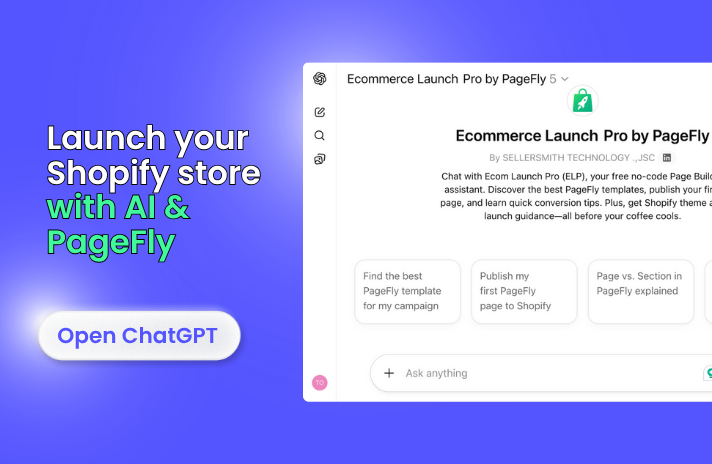



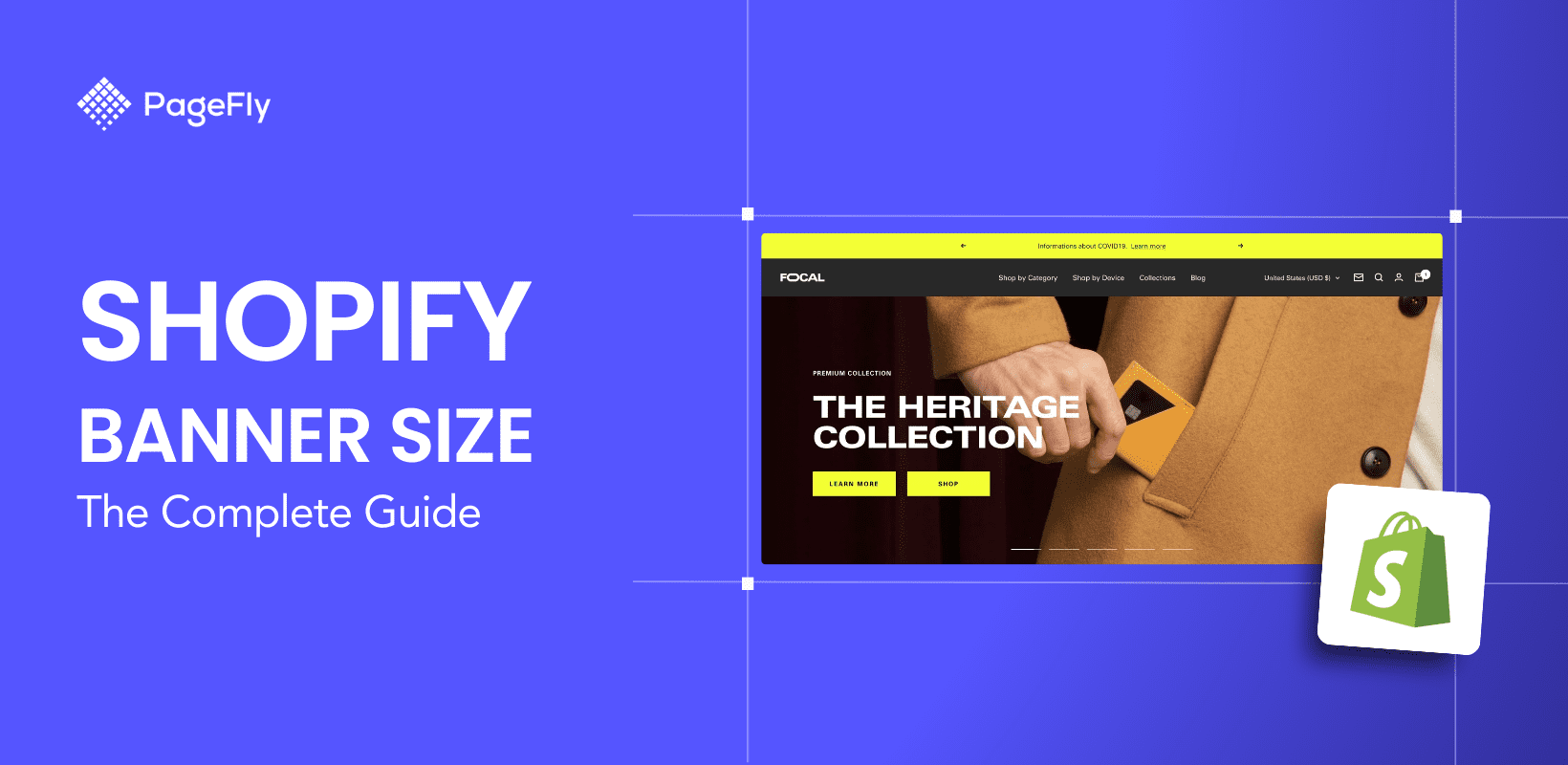
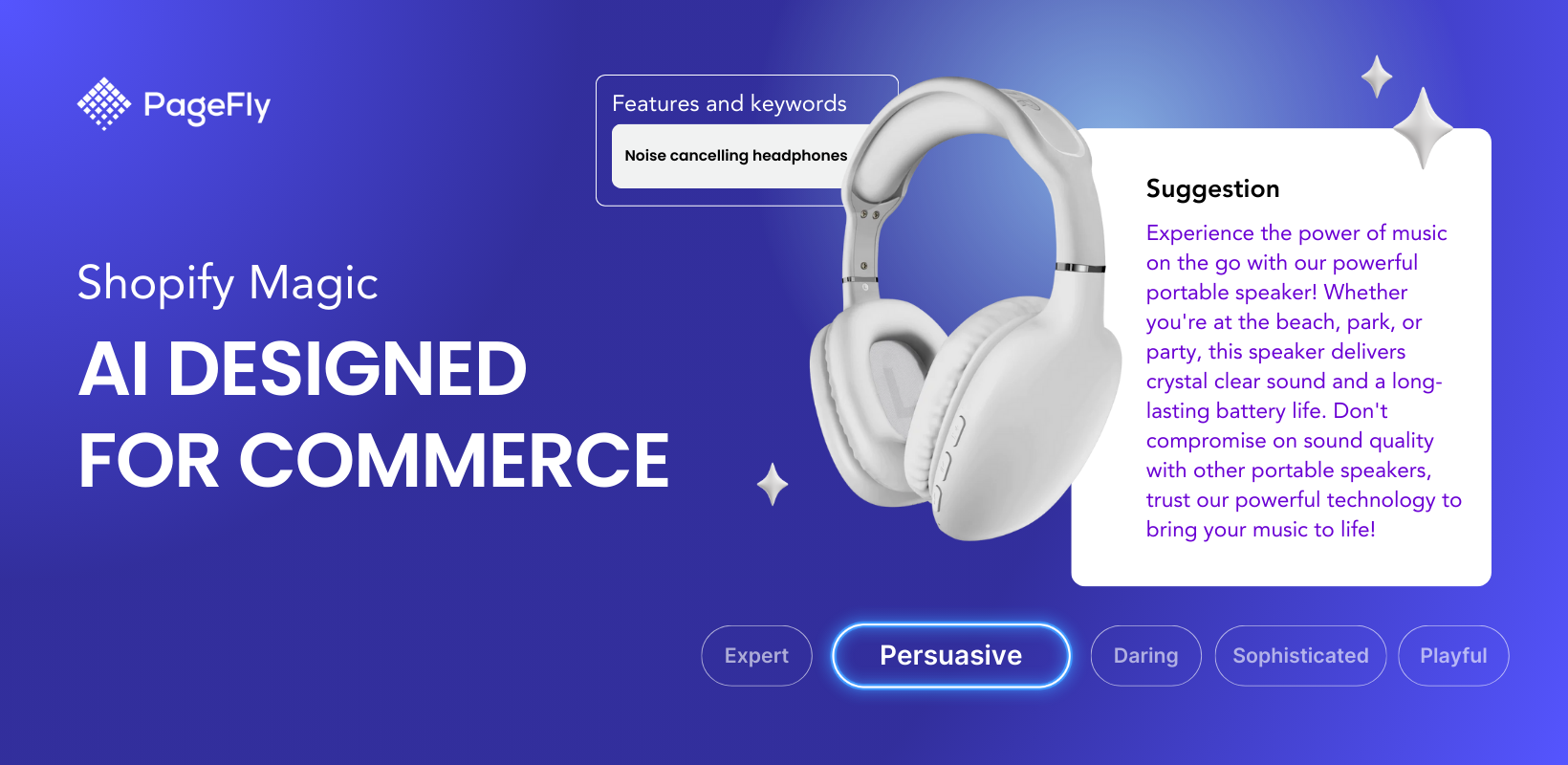

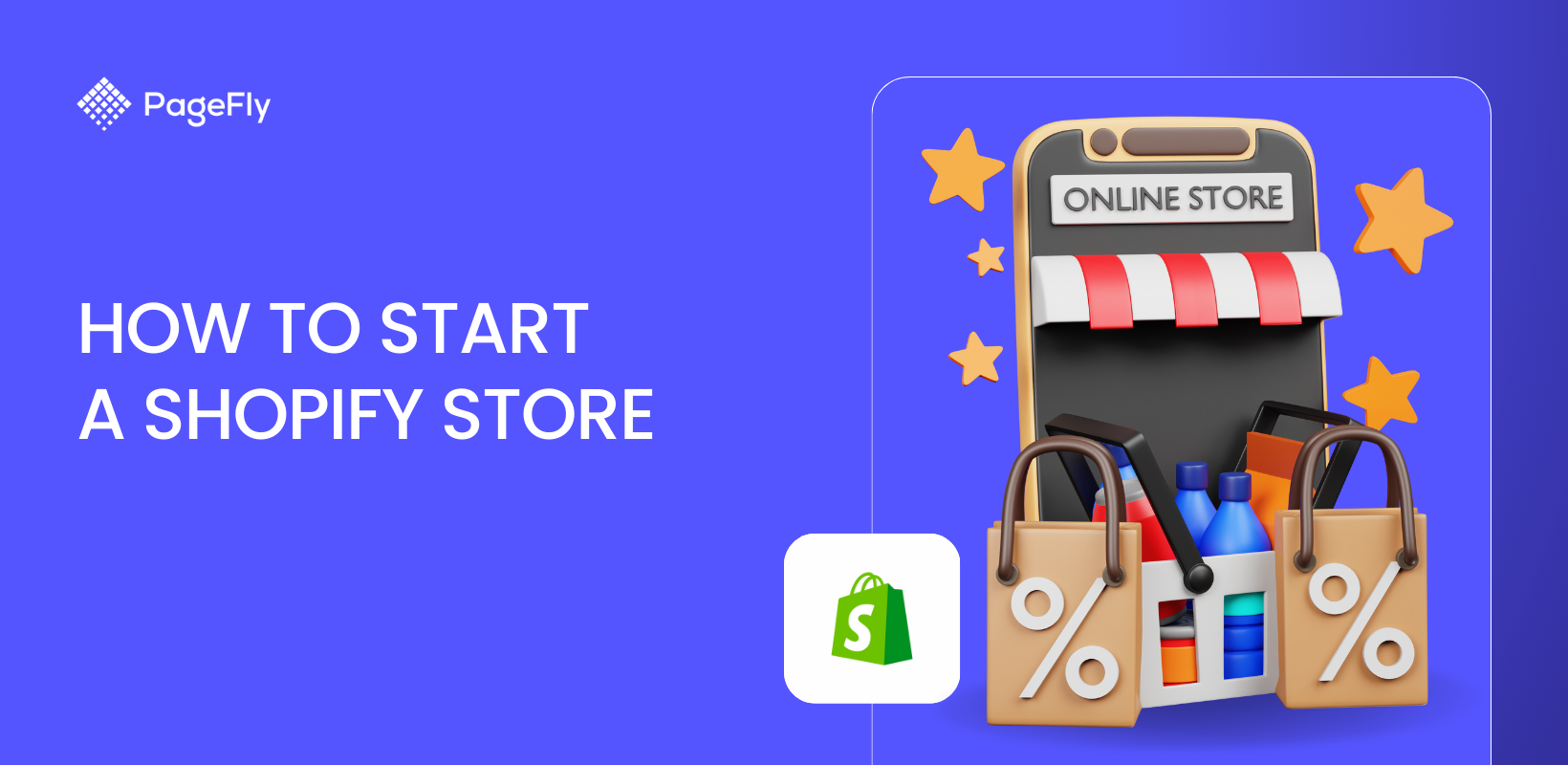
![27 Best Shopify General Stores + Complete Strategy Guide [2025]](http://pagefly.io/cdn/shop/articles/Best_Shopify_General_Stores_2f9d09f2-7c38-4da9-a495-e9f4898ddd68.jpg?v=1757271936&width=1640)

